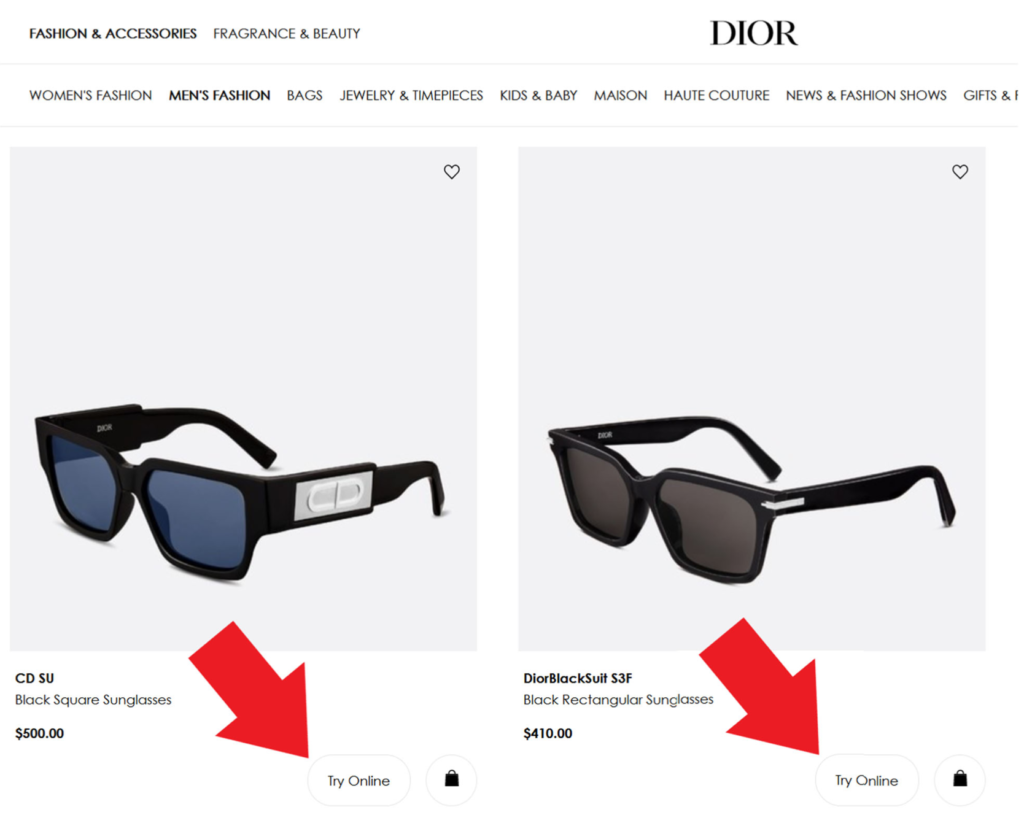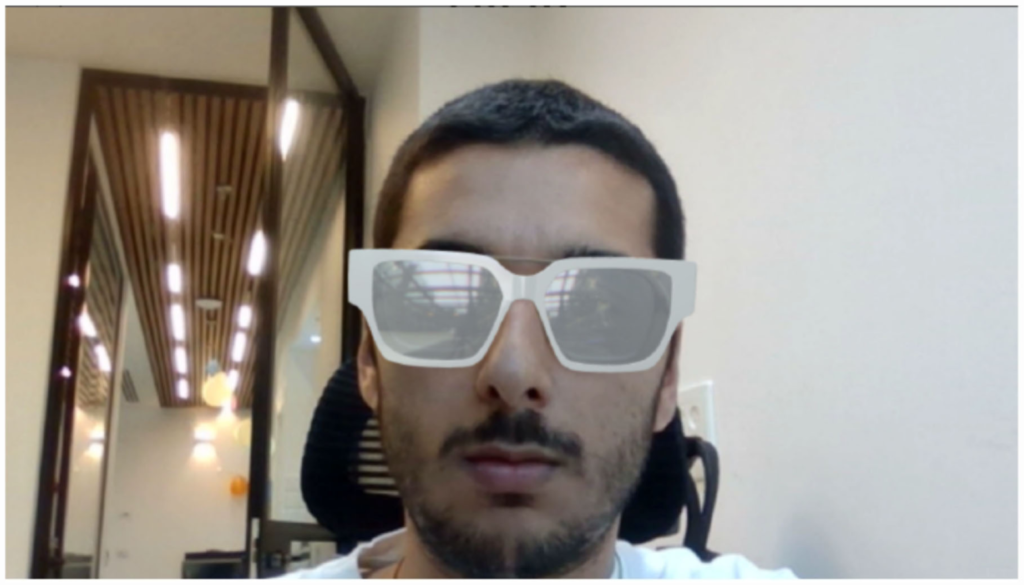
Dior Accused of Collecting Facial Biometric Data Through ‘Try Online’ Tool in a Recent BIPA Class Action
A recent BIPA class action filed on August 30, 2022 accuses Christian Dior, Inc.’s virtual try-on feature of collecting Illinois users’ biometric data without consent.
The 32-page complaint alleges that the luxury fashion brand sells sunglasses and other eyewear online to US consumers, including Illinois residents. It further alleges that consumers can virtually try-on the eyewear products through the “Try Online” feature on the website.
“In order to show a potential customer how the Eyewear would look on their face, Dior’s Virtual Try-On feature uses potential customers’ facial geometry and facial recognition software to position the Eyewear on the potential customer’s face and keep it there as the potential customer moves their head to see the Eyewear from different angles.”
Warmack-Stillwell v. Christian Dior, Inc. – 1:22-cv-04633

By clicking a product’s “Try Online” button, Dior’s website uses a customer’s camera or uploaded photo to position the selected eyewear on their face. The lawsuit accuses Dior of using third party facial recognition technology to scan the user’s face and overlay an image of the eyewear in the right place.

“The Virtual Try-On feature is able to accurately detect, in an instant, where the chosen Dior Eyewear should be placed on an individual’s face, and moves the product with the user’s movements to ensure that it appears as if the user is actually wearing the Eyewear.”
The BIPA prohibits collection or use of Illinois residents’ biometric data without their prior consent
The BIPA requires businesses to obtain informed written consent before collecting, using, or storing biometric identifiers of Illinois residents. Furthermore, the BIPA requires businesses to publish a retention schedule for permanently destroying consumers’ biometric data. Disclosing “specific purpose and length of term for which such biometric identifiers or information are being collected, stored, and used.”
Evidently Dior failed to notify users that their biometric information is being collected, the lawsuit alleges. It goes on to allege that Dior also fails to inform Illinois residents about the purpose and duration of their biometric data storage and use, as required by the BIPA.
The Class Action seeks remedy for each BIPA violation for each Illinois resident who visited Dior’s website
The lawsuit alleges that Dior violated the BIPA “each and every time” an Illinois resident used the “Try Online” feature on their website. According to the complaint, each use of the feature triggered a collection and storage of users’ biometric facial info. The complaint claims that each such instance is a separate violation of the Illinois law.
The lawsuit seeks to represent Illinois residents whose biometric data was captured, collected, received, or used by the luxury fashion brand. The proposed class includes any Illinois resident who used Dior’s ‘Try Online’ feature and took a picture of their face.
Want to stay up to date on class actions that concern you? Register for the free weekly newsletter from ClassActionNews.com.
What could this class action mean to you?
If you are an Illinois resident who used Dior’s Try Online feature, you are eligible to be a class member.
An Illinois resident who used a similar feature on any website, may have a potential BIPA claim. Many business use such features to provide a better online shopping experience to users. And often without disclosing their biometric data collection practises to the consumers, and risking their users’ biometric data privacy.
The complaint raises serious allegations about Dior, and other companies’ data collection practices. Consumers have a right to be informed. Some consumers may have used Virtual Try-on more carefully if they knew their biometric data would be exposed.
Are other businesses also collecting your biometric data, possibly without consent? Read our investigation on how your Biometric Data Privacy might be at risk and how the laws can help you in securing your biometric data privacy.
BIPA Class Actions are bringing a variety of biometric data collection practices under the scanner
The “Virtual Try-On” features are under the BIPA scanner. Evidently, this feature can only work using facial biometric information. Thus, a business that offers such a feature without notice and consent may violate BIPA and other similar laws. Pandora is facing a BIPA class action for the “Virtual Try On” feature on their website.
Another set of BIPA Class Actions are being filed against large store chains, like Walmart and 7 Eleven. Specifically, these complaints are accusing the stores of collecting shoppers’ facial biometric data using the security cameras in the stores. Again without any notice or consent.
Similarly, we interact with various other businesses which collect and use our biometric information for authentication, or authorization. Often without our consent, or without making all the necessary disclosures and policies to handle such sensitive user data. Tinder, a popular dating app, is also facing a BIPA class action for capturing users’ facial scans without consent.
If you are an Illinois resident, the BIPA could offer a remedy to you. Even you may be eligible to collect money as a class member. Or if you are aware of any business which may have collected your biometric information without your consent, you even file a class action under BIPA and represent a class of all affected consumers.
You can also secure your Biometric Data Privacy
If you have used a “Virtual Try-on” feature on any website, and taken pictures of your face, they may have stored your facial biometric data as well. Your biometric privacy may be at risk.
Illinois’ Biometric Information Privacy Act allows affected consumers to recover up to $5,000 for each instance of violation they suffered.
Similarly, other states have also enacted laws to protect their residents’ biometric data privacy, like California’s CCPA and CPRA.
We can help you investigate your potential BIPA claims. Please contact us to consult a class action lawyer at ClassActionNews today.
Subscribe Now to our weekly Newsletter and stand a chance to recover up to $5,000 too.
